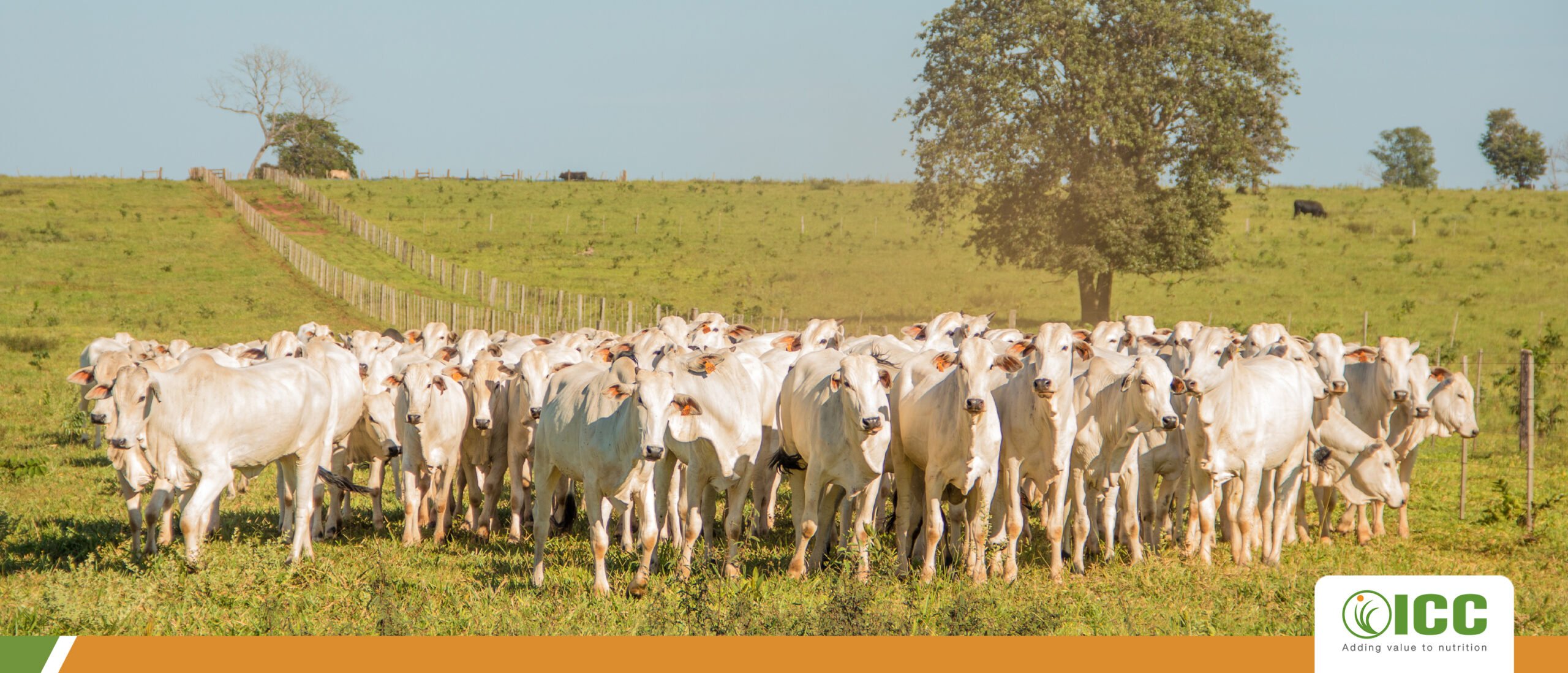Safe Management Series: planning and balancing nutrition makes a difference in cattle farming
Marcelo Pedrosa Carneiro, ICC Brazil’s ruminant specialist, addresses the areas that require attention when balancing performance, ruminal health and the welfare of beef and dairy cattle
With nutritional planning, producers ensure adequate nutrition of the beef and dairy cattle herds throughout the production process, according to the category of animal and performance goals. In this edition of the “Safe Management” series, Marcelo Pedrosa Carneiro, ICC Brazil’s ruminant specialist, addresses the areas that require attention in the nutritional planning and balancing of cattle farming. Read on to see safe ways for producers to obtain results.
During the nutritional planning and balancing of cattle production, the farm administrator must devise forage production sizing, the purchase of grains, and the acquisition of several other inputs, preferably with the support of a specialized professional adviser. It is also necessary to ensure the supply of good quality water, as well as drinking fountains and feeders suitable for each production system and the number of animals.
In order to do so, it is crucial to count on the advice of a trusted nutritionist to lead the support and guidance of choosing ingredients that make up the diets for each category of animal, considering logistics and regional availability of the inputs. This professional is also responsible for preparing the correct balance of nutrients in diets between performance, ruminal health, and animal welfare.
Care for acidosis does not compromise the planning of cattle farming
Acidosis is one of the primary nutritional disorders and a cause of great concern to producers. High-energy diets, usually rich in starch, are significant for achieving high rates of weight gain and milk production.
The nutritionist should dose each nutrient to maintain the balance between ruminal health and performance in the production and quality of beef and milk. Without proper balancing, these diets may lead to the accumulation of lactic acid and cause ruminal acidosis. This can cause lesions in the epithelium and thus decreasing the rumen motility and its absorptive capacity. Also, it may cause complications such as diarrhea, bloat, and liver abscesses. The severity of such cases results in weaker performance and can even lead to death.
RumenYeast® is a useful tool in these cases. The natural feed additive developed by ICC Brazil contributes categorically to the prevention of acidosis. Important experiments prove that RumenYeast® reduces lactic acid in the rumen, favors the intraruminal development of cellulolytic bacteria, improves fiber digestibility, and promotes an increase in weight gain, quality, and production of milk.
Do you want to know more about ICC Brazil solutions that help to balance performance, ruminal health, and animal welfare of beef and dairy cattle? Visit: www.iccbrazil.com/linha-produtos.
Posted in 16 June of 2020


